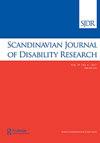A Novel Variant in the PAX4 Gene Causes Maturity-Onset Diabetes of the Young (MODY), Type IX with Neurodevelopmental Disorder
IF 1.7
Q2 REHABILITATION
引用次数: 0
Abstract
A genetically diverse condition, maturity-onset diabetes of the young (MODY), frequently develops before the age of 25. MODY is caused by disease-causing sequence variations in the PAX4 gene, which is found on chromosome 7q32.1. Additionally, it has also been observed that variants in PAX4 have also been associated with neurodevelopmental disability. Whole exome sequencing (WES) followed by Sanger sequencing was performed for all the available affected and unaffected members of the family. Data analysis revealed a novel heterozygous nonsense variant (c.61C>T; p.Gln21*) in the PAX4 gene in the affected individuals, which segregated perfectly with the disease phenotype. The present study adds to the PAX4 mutation spectrum and reports on the first case of MODY associated with neurodevelopmental disorders in humans.PAX4基因的一种新变异导致成熟型糖尿病(MODY), IX型伴神经发育障碍
一种基因多样的疾病,成熟型糖尿病(MODY),通常在25岁之前发病。MODY是由PAX4基因的致病序列变异引起的,该基因位于染色体7q32.1上。此外,还观察到PAX4的变异也与神经发育障碍有关。对所有受影响和未受影响的家庭成员进行全外显子组测序(WES)和Sanger测序。数据分析发现一个新的杂合无义变异(c.61C>T;p.Gln21*)在受影响个体的PAX4基因中分离,与疾病表型完全分离。本研究增加了PAX4突变谱,并报道了第一例与人类神经发育障碍相关的MODY病例。
本文章由计算机程序翻译,如有差异,请以英文原文为准。
求助全文
约1分钟内获得全文
求助全文
来源期刊

Scandinavian Journal of Disability Research
REHABILITATION-
CiteScore
3.20
自引率
0.00%
发文量
13
审稿时长
16 weeks
 求助内容:
求助内容: 应助结果提醒方式:
应助结果提醒方式:


